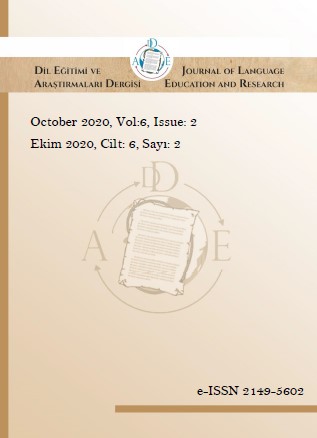Exploring the Turkish Concept İrkil-: Corpus-driven Cognitive and Lexical Profiling of a Pre-emotion
Exploring the Turkish Concept İrkil-: Corpus-driven Cognitive and Lexical Profiling of a Pre-emotion
Author(s): Muhammet Fatih Adıgüzel, Yeşim AksanSubject(s): Lexis, Semantics, Cognitive linguistics, Turkic languages, Phraseology
Published by: T.C. MEHMET AKİF ERSOY ÜNİVERSİTESİ EĞİTİM FAKÜLTESİ
Keywords: irkil; startle reflex; fear; corpus-driven; model of extended lexical units;
Summary/Abstract: As a multi-disciplinary study about irkil- (get startled), which combines findings from psychology, cognitive and corpus linguistics, the article aims to identify the lexical profile and cognitive structure of this pre-emotion through its concordances from the TNC. We employed model of extended lexical units, which involves identifying irkil’s typical collocates, colligates, semantic preferences and discourse prosodies. As part of its event schema, irkil- was found to have a linguistic schema to be filled by certain paradigmatic and syntagmatic choices. We found typical collocates of irkil- are determined by the experiencer’s pre-startle situation (engrossment/absence), sudden stimuli of acoustic, tactile, visual and cognitive natures, post-startle behavioural tendencies characterised by hypervigilance, and the ensuing emotion – fear, surprise or anger. The corpus data demonstrated the schematic nature of irkil- dictates specific lexical environments with collocates from certain semantic domains, which also affect its prosody. The study also allowed us to place the pre-emotion irkil- in the right place in the cognitive appraisal pattern for fear prepared by Scherer (2001).
Journal: Dil Eğitimi ve Araştırmaları Dergisi
- Issue Year: 6/2020
- Issue No: 2
- Page Range: 428-454
- Page Count: 27
- Language: English

